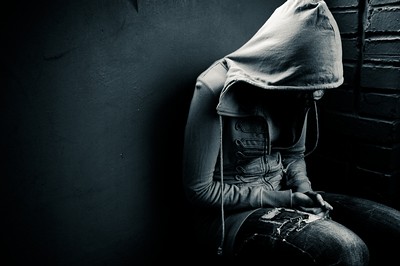
This post kicks off our new series on Generation Y and their relationship with their health. From challenges to epidemics, this series attempts to expose how these digital natives are managing health-related issues, both individually and together.
By Kimberly Reyes (@CommDuCoeur)
On April 20, 1999, two high school seniors named Eric Harris and Dylan Klebold killed 12 students and 1 teacher, and injured 24 others in what came to be known as the Columbine massacre.
On September 11, 2001, the terrorist group al-Qaeda hijacked four commercial passenger jet airliners and flew them into the World Trade Center and the Pentagon, killing thousands of people.
On March 20, 2003, President George W. Bush and Prime Minister Tony Blair declared war on Iraq, deploying 248,000 U.S. soldiers to invade the middle eastern country.
On August 29, 2005, Hurricane Katrina tore through New Orleans, leaving massive death and destruction in its wake.
In December 2007, the country fell into a severe economic recession, with an estimated 2.6 million U.S. jobs lost in the year that followed.
Each of these devastating events in our nation’s history happened in the span of ten years…that’s almost half the life of a Millennial, which describes the age group born between 1980 and 1995. Sure, other generations have endured the same trials and tribulations (the Great Depression, the Vietnam War, to name a few), “but no cohort of American youth has ever endured repeated mass catastrophes in the harsh, inescapable glare of a 24/7 media environment,” says USA Today. Add these catastrophes to social and economic factors, as well as individual personal trauma, and you’ve got the recipe for depression on a generational scale.
People are already referring to us as “The Melancholy Generation,” and they’ve got the numbers to back them up; according to a HealthFocus Trend Study, 28% of 18 to 29-year-olds report being affected by depression. College psychological counseling is on the rise, and suicide is the third leading cause of death among young people ages 15 to 24.
One way that Millennials are coping is by turning to each other for support. As digital natives, we grew up in a constantly wired environment – transferring seamlessly from desktop, to game console, to mobile phone and tablet – and finding ways to stay connected to each other on each device. We were early adopters of social media, and grew comfortable with sharing our most private thoughts with our friends online. For some of us, it’s easier to broadcast our feelings to a wide network of people instead of reaching out to friends individually. Casual updates about our mood de-stigmatize the feeling of being depressed. From the USA Today article I mentioned earlier:
“It creates an immediate social-health network,” says Adam Ross Wilson, 22, a 2006 graduate of Haverford College now working on Capitol Hill. “The chances are there’s always somebody you can reach to talk about it. It makes it a lot easier not to feel alone.”
A couple of weeks ago, the Wall Street Journal took this idea a little further, suggesting that the radiation from cell phones can actually help treat depression. This is based on a JAMA study on the effects of cell phone radiofrequency signal exposure on brain glucose metabolism. Reto Huber, a professor at the University Childrens Hospital Zurich, told the Wall Street Journal that “cell phones potentially could be used therapeutically, as a non-invasive tool to interact with brain rhythms or stimulate parts of the brain that arent working optimally.”
Believe it or not, this isn’t the weirdest technological solution for depression. Helen Mayberg, a neurologist at Emory University’s school of medicine in Atlanta, identified a region in the brain that was overactive among severely depressed patients. She decided to test out a theory that medical scientists have been working on that involves using pacemakers to administer small shocks to particular regions of the brain. Throughout her experiment, the patients were awake and lucid. Many reported experiencing a sudden improvement to their mood after electrode stimulation, according to an article published by The Guardian in 2005.
For the time being, though, strapping a cell phone to someone’s head or using a pacemaker as mobile electroshock therapy may not be the best solutions for combating depression. Here are other ways today’s digital natives can use technology to prevent or treat depression:
- One of the first steps to dealing with depression is being able to identify the symptoms of depression. My Mood Monitor¢‚û¬¢ is a scientifically validated 3-minute assessment for anxiety, depression, PTSD and bipolar disorder that is available as a free mobile application called depressioncheck.
- Another application called Moody Me helps those affected by depression track their mood by keeping a log of their feelings, record what affects them, and enter what medications they’re taking. In addition, users can take and upload photos of the things that make them happy, then play it back for an instant mood lift.
Stay tuned for more posts from this series on “Generation Next” and we invite you to submit your questions or comments below in the mean time!
One Response to Generation Y and Health: Dealing with Depression